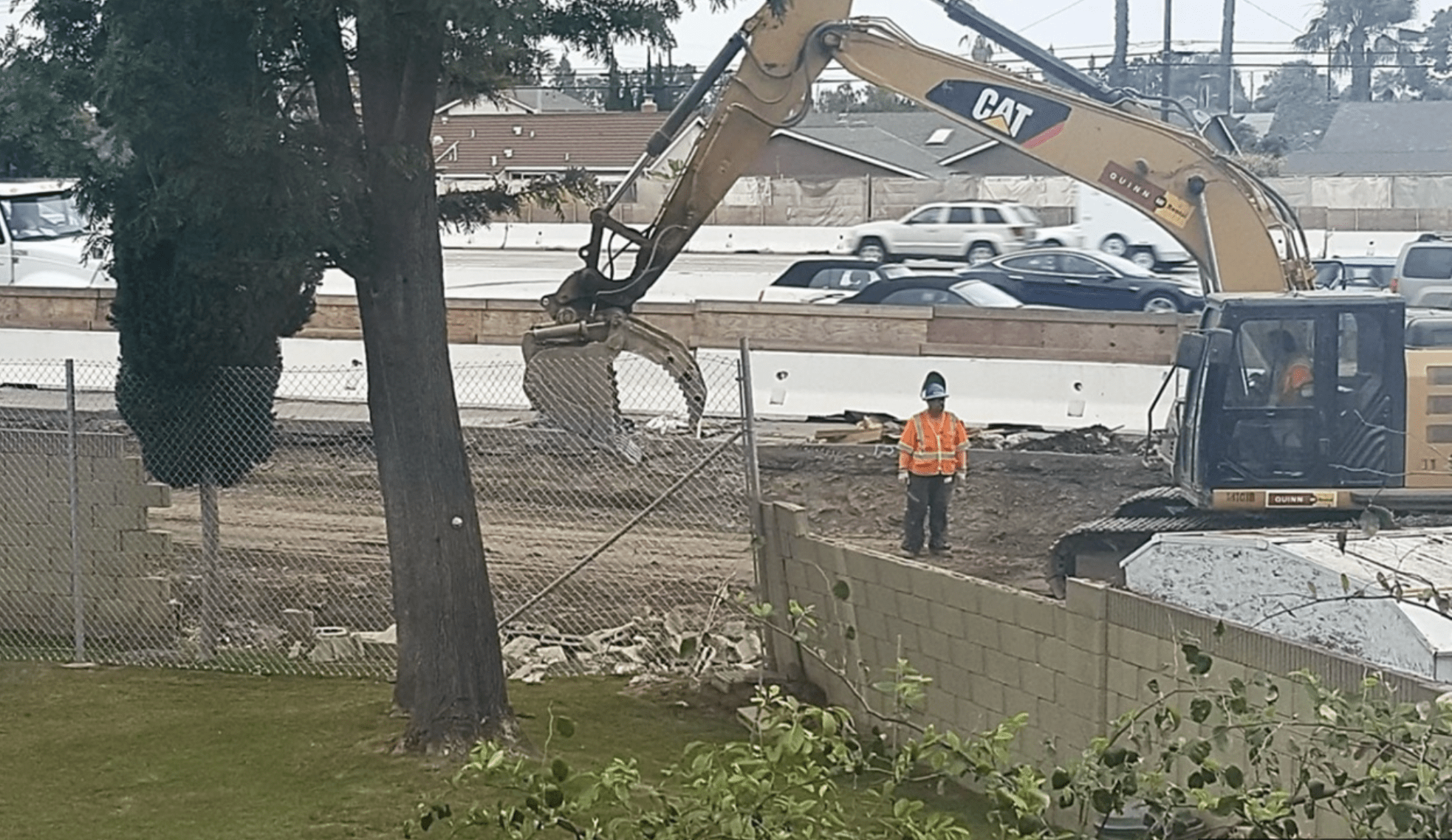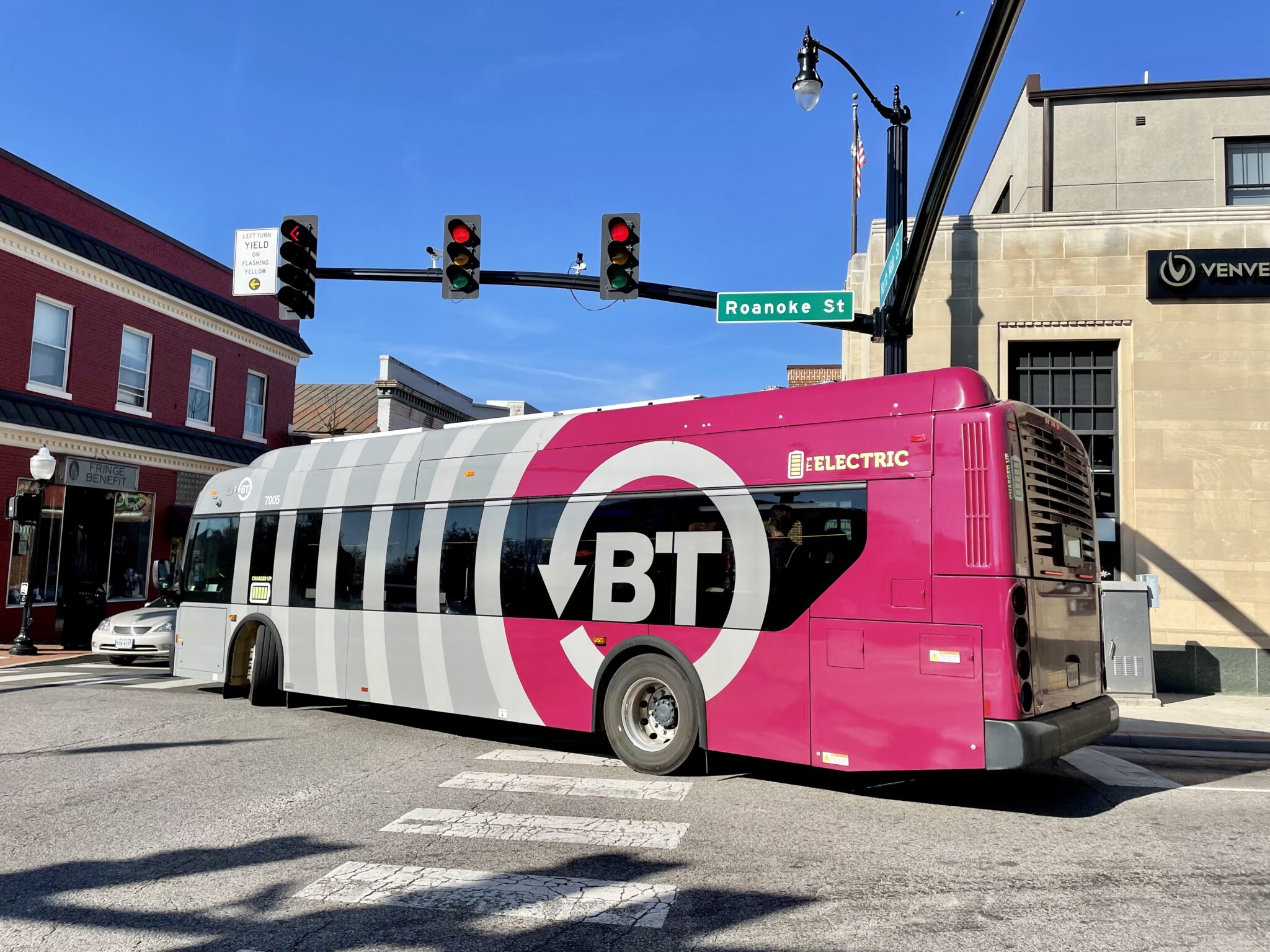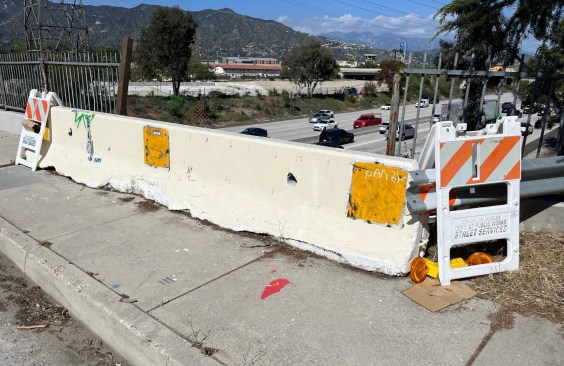Are Texas Transportation Commissioners’ Investments in Auto and Oil Fueling Highway Addiction?
12:01 AM EST on March 10, 2023
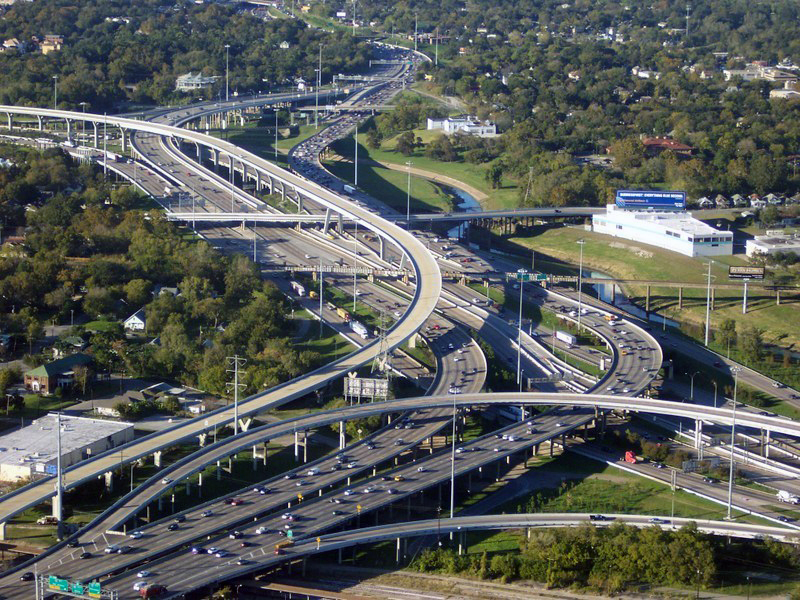
Houston’s I-45 and I-10. Photo: Dhanix, CC
When the I-45 expansion in Houston is finished, the highway that funnels suburban commuters to downtown will run through the backyard that Steph Valdez’s nieces and nephews now play in. The preschool they attend will be demolished to make room for more cars rushing past, and for cars to stall in Houston’s notorious rush hour traffic, spewing pollution over the adjacent neighborhoods. And hers is just one of hundreds of businesses and homes — many of them in predominantly Black and Latino neighborhoods — that will be displaced by the new lanes.
Throughout last year, Valdez joined her fellow advocates with the Stop TxDOT I-45 coalition for monthly visits to Austin to provide public comments at the Texas Transportation Commission. The commissioners, who oversee state-wide transportation projects built through the Texas Department of Transportation, are all appointed by the governor, and Valdez wanted these leaders know that the agency hadn’t made a good faith effort to engage Spanish-speaking residents of neighborhoods like Kashmere Gardens.
“When we’re out there door knocking, I’ve had people tell me, ‘You’re the only one I’ve talked to about the [highway expansion],’” Valdez says. “People don’t even know their houses are going to be knocked down. It feels like TXDOT got what they wanted and ran with it.”
None of the commissioners to whom Valdez spoke during these visits, though, had any background in transportation policy or urban planning, and only one had experience in local governance. And all of them, she soon discovered, had close ties to the automobile and fossil fuel industry that made her less than hopeful that they would hear her concerns.
“They’d discuss budgets, billions and billions of dollars — and it’s obvious who their interests are,” she says. “I was there every month and never once did I hear them say, ‘People who are living in their grandma’s home, that’s their inheritance — [we want to make sure they] are being paid equally as all the big businesses downtown.’”

Across the nation, many state departments of transportation are overseen by a governor-appointed board of commissioners like the Texas Transportation Commission. But aside from a few states, like Oklahoma and Missouri, few transportation commission appointees seem to be quite so closely tied to the auto or fossil fuel industry as they are in Texas.
According to publicly available filings with the Texas Ethics Commission, J. Bruce Bugg, a banker from San Antonio, and Alvin New, the former mayor of San Angelo, hold numerous stocks in companies like Chevron, Parsley Energy, Total and Ford Motors; Laura Ryan, who recently completed her term and left the agency, spent nearly her entire career working at Gulf States Toyota, which bills itself as “one of the world's largest independent distributors of Toyota vehicles”; she also served as the CEO of Purdy Group, another auto company, and according to her LinkedIn profile, Ryan’s time at both companies overlapped with her time on the commission. Another commissioner, Robert Vaughn, is a Dallas businessman who owns a petroleum company bearing his name that he’s worked at for more than four decades.
Ahead of the 2022 election cycle, the four commissioners also donated a combined total of $581,655 to Gov. Greg Abbott's campaign.
When TxDOT was reached for comment regarding each of the commissioners’ potential conflicts of interests, a spokesperson provided the following written statement: “Each commissioner considers the needs of all Texans in their decisions. If a conflict should arise on a particular matter, commissioners will abstain or recuse themselves from voting as appropriate under each unique circumstance.”
That policy, though, hasn’t slowed the pace of highway building in Texas. In August 2022, TxDOT unveiled its new 10-year plan which promised $85 billion for new highway construction projects in major cities and rural areas alike. Many of those projects are aimed at combatting congestion, despite an established body of research which shows that building more lanes only incentivizes more drivers on roads, leading to the same traffic problems. Meanwhile, direct state funding towards public transit systems sits at about $35 million per year.
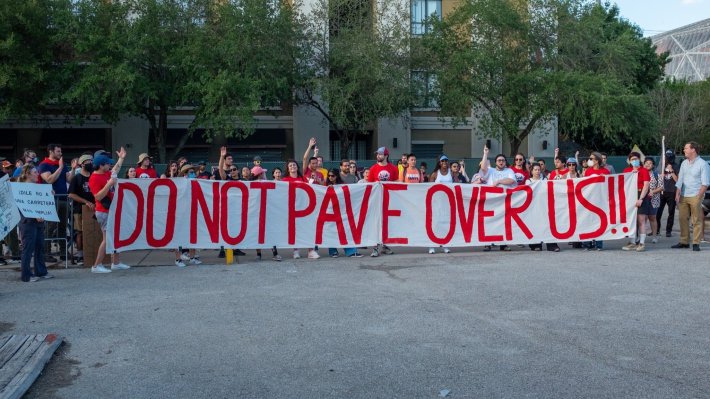
In Houston, as in other cities across Texas and the US, there’s a growing movement to promote alternatives – particularly for residents who can’t afford a car and have few other options to get around. Time and time again, however, advocates have been disappointed by TxDOT’s insistence on widening highways even when local governments are on board with less car-centric ideas.
Recently, the state agency intervened to essentially stop San Antonio’s plan to remake a downtown thoroughfare by replacing two car lanes with bike lanes and walkways, for example. That decision seemed to fulfill a controversial component of Governor Greg Abbott’s 2022 election platform, which specifically promised to oppose “anti-car measures.”
“TxDOT always comes to the same conclusion, despite the growing awareness of how transportation systems work and the failures of expansion and induced demand,” said Harrison Humphreys, a climate advocate with Air Alliance Houston.
Because the Texas Transportation Commissioners are appointed officials, their potential conflicts of interests may seem one step removed from true corruption, acknowledges Andrew Wheat, the research director at Texans for Public Justice. Unlike elected officials, the Transportation Committee members don’t rely on the industry they regulate to bankroll expensive state-wide campaigns.
Still, some advocates say the TTC’s autocentric business ties deserve more scrutiny.
“You would hope to see policy shaped by good ideas, evidence – but it’s very disillusioning to find out that what’s motivating people’s decisions is their own pocketbooks or access to power and the governor,” says Molly Cook, a community organizer with Stop TxDOT I-45, and a former Democratic candidate for the Texas Senate in Houston. “There needs to be major campaign finance reform, [and] the folks who get appointed should have to declare their own financial interests in a project, and then recuse themselves from voting. [That’s] exactly what we [expect] politicians to do when they’re elected. So why not the ones who are appointed?”
Amal Ahmed is a journalist based in Dallas, where she covers climate and environmental policy. Her work focusing on environmental justice has been published in the Texas Observer, Texas Monthly and Southerly among other outlets.
Kea Wilson is editor of Streetsblog USA. She has more than a dozen years experience as a writer telling emotional, urgent and actionable stories that motivate average Americans to get involved in making their cities better places. She is also a novelist, cyclist, and affordable housing advocate. She previously worked at Strong Towns, and currently lives in St. Louis, MO. Kea can be reached at kea@streetsblog.org or on Twitter @streetsblogkea. Please reach out to her with tips and submissions.
Read More:
Stay in touch
Sign up for our free newsletter
More from Streetsblog USA
Talking Headways Podcast: Money is a Lot of Different Things
It's Part II of our discussion with Jim Kumon!
If Thursday’s Headlines Build It, They Will Come
Why can the U.S. quickly rebuild a bridge for cars, but not do the same for transit? It comes down to political will and a reliance on consultants.
Wider Highways Don’t Solve Congestion. So Why Are We Still Knocking Down Homes for Them?
Highway expansion projects certainly qualify as projects for public use. But do they deliver a public benefit that justifies taking private property?
Kiss Wednesday’s Headlines on the Bus
Bus-only lanes result in faster service that saves transit agencies money and helps riders get to work faster.
Freeway Drivers Keep Slamming into Bridge Railing in L.A.’s Griffith Park
Drivers keep smashing the Riverside Drive Bridge railing - plus a few other Griffith Park bike/walk updates.


